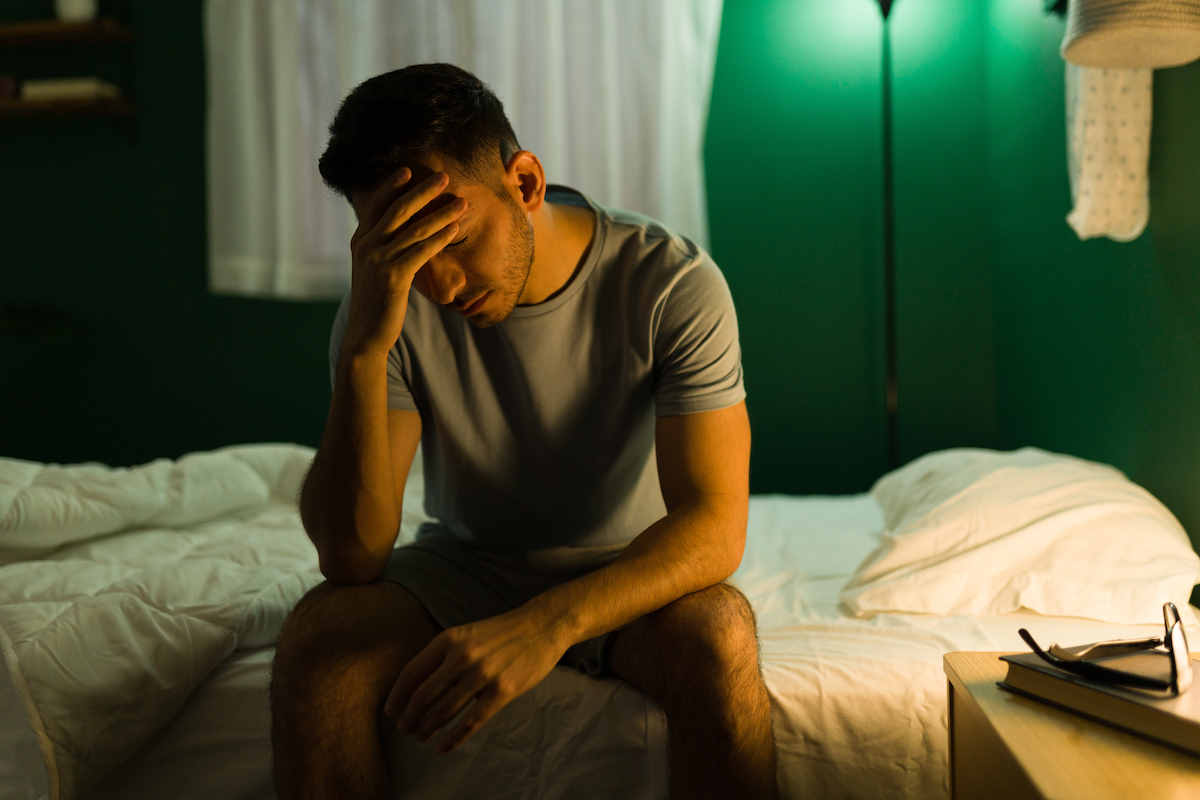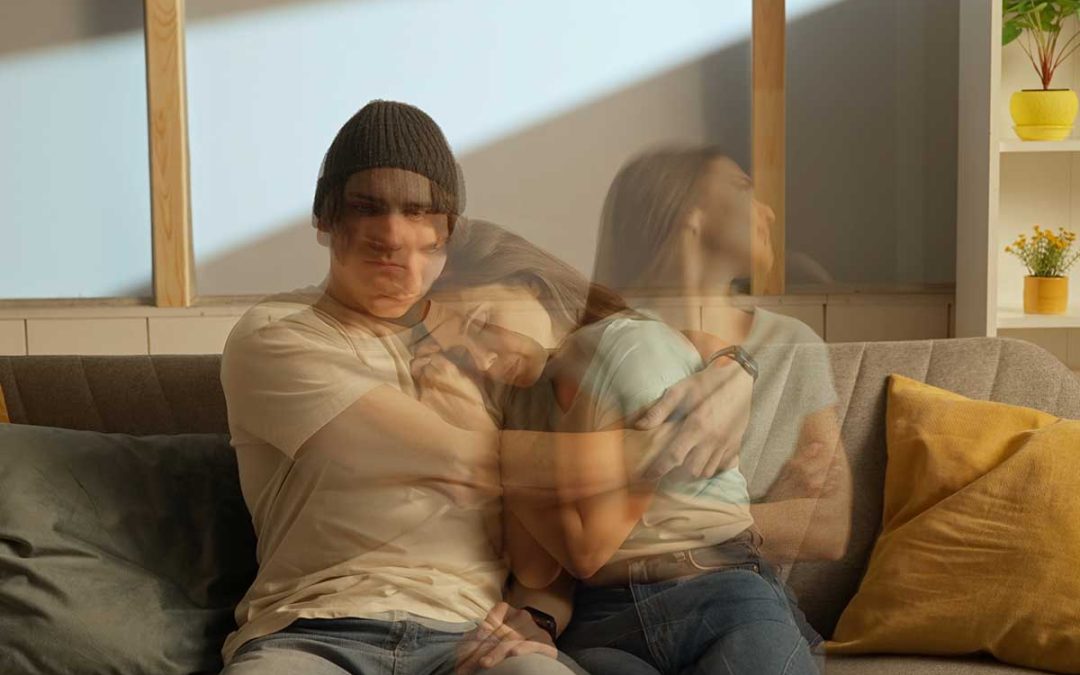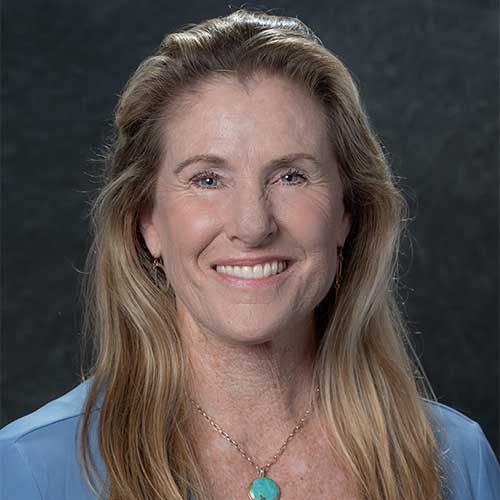Feeling stuck? Tired for no reason? Wondering why things that used to bring you joy now feel like a chore, or even like nothing at all?
If any of that sounds familiar, you’re not alone. Depression is one of the most common mental health conditions in adults. According to the World Health Organization, about 280 million people globally suffer from depression (around 3.8% of people), affecting around 5% of all adults. While 5% may seem small, this means 1 in 20 people you see and meet may be struggling with the same hardships as you. Depression doesn’t always look the way people expect it to. It can show up quietly, over time. Or it can hit hard, making it difficult to function day-to-day.
At Rosebay Behavioral Health in San Anselmo, we work with people across Marin County and the Bay Area who are navigating the deep and sometimes disorienting experience of depression. Whether you’re quietly searching for answers, worried about someone you care about, or simply trying to understand what you’re feeling, then you’re in the right place. Here, we offer depression treatment that suits you, your conditions, and your needs.
What Depression Is and What It Isn’t
Depression isn’t just a bad day or a low mood. It’s a mental health condition that affects how you think, feel, and move through the world. Some days, it may feel like emotional heaviness. On other days, it’s complete numbness or exhaustion. For many people, depression makes basic tasks like getting out of bed, returning a text, or eating feel like climbing a mountain. There’s no shame in feeling this way. And there’s help.
While depression is one of the most recognized mental health conditions, it falls under a broader group known as mood disorders, which also includes conditions like bipolar disorder and persistent depressive disorder.
Types of Depression and Why It Doesn’t Look the Same for Everyone
One reason depression is so misunderstood is that it doesn’t always show up the same way. You may feel deeply sad and withdrawn or still show up to work with a smile while feeling empty inside.
Here are some of the main types of depression, each with its own challenges:
Major Depressive Disorder (MDD)
Often called Clinical Depression, this is the kind most people picture when they think of “depression.” This may include:
- Feeling worthless or hopeless
- Losing interest in things you used to care about
- Sleep and appetite changes
- Trouble concentrating or making decisions
MDD can show itself in the form of a major depressive episode, which the National Institute of Mental Health states that 8.3% of adults in the U.S. experienced at least one.
MDD can interfere with work, relationships, and your ability to enjoy life or even get through it.
Persistent Depressive Disorder (Dysthymia)
This form of depression lingers over time, sometimes for years. Persistent Depressive Disorder is often described as a low-grade sadness or fog that never quite lifts. You may still go to work or school, but life feels harder than it should.
Bipolar Depression
Part of bipolar disorder, Bipolar Depression includes intense lows between manic or hypomanic episodes. It can be disorienting, going from energized and impulsive to deeply depressed in the same month or even week.
Seasonal Affective Disorder (SAD)
Some people notice depression that hits during certain times of the year, most commonly in the winter. You might feel sluggish, need more sleep than usual, or pull away from others when the days get shorter.
Postpartum Depression
This can affect new mothers after childbirth. You may feel disconnected from your baby, overwhelmed by guilt, or emotionally numb, sometimes all at once. It’s more than the “baby blues,” and it deserves support.
Atypical Depression
A lesser-known form where symptoms don’t follow the typical patterns. You might still smile or feel okay when something positive happens, but struggle deeply when alone. People with atypical depression may sleep more, gain weight, and feel intensely rejected.
Psychotic Depression
This is a more severe form of depression that includes delusions or hallucinations. It often coexists with other complex conditions, such as psychosis, and requires specialized treatment and care.
How Depression Affects Daily Life
If you’ve ever wondered why even the smallest task feels overwhelming, you’re not imagining it. Depression doesn’t just affect your thoughts or feelings. It impacts your ability to function. Depression can show up in subtle ways or completely derail your day.
“It wasn’t just sadness. It was this numb, heavy feeling I couldn’t shake. I’d wake up already exhausted, even though I hadn’t done anything. I stopped answering texts. I couldn’t explain why simple things like making a sandwich or folding laundry felt impossible. People kept telling me to cheer up, but I didn’t even feel present enough to cry. It felt like I was fading in the background of my own life. Getting help didn’t magically fix everything overnight, but it gave me a way to start moving again. It felt like myself was finally coming back.”
– Anonymous
That kind of experience is more common than many people realize. Depression can quietly reshape your day-to-day life, even when it doesn’t look dramatic on the outside. Here are just a few of the ways it can interfere with everyday responsibilities and relationships:
Work and Responsibilities
You may find it hard to focus, call in sick often, or feel completely unmotivated. Some people lose jobs while others keep showing up but feel like they’re barely hanging on.
Relationships and Communication
Depression can create distance between you and the people you care about. You may isolate, cancel plans, or feel like no one understands what you’re going through.
Physical Health
Fatigue. Changes in appetite. Chronic pain. Trouble sleeping or sleeping too much. Depression affects your body in real and noticeable ways.
Motivation and Decisions
Simple tasks like doing laundry, cooking, or responding to an email can feel impossible. You may feel paralyzed by even the smallest decisions. This isn’t laziness, it’s depression.
When to Reach Out for Help
There’s a point where simply feeling sad turns into something heavier and more complex. If your depression is making it hard to care for yourself, show up in your relationships, or simply function then you deserve support.
Some signs it’s time to reach out:
- You’re withdrawing from people or responsibilities
- You’re using substances to cope
- You’re feeling numb, hopeless, or emotionally overwhelmed
- You’re having thoughts of hurting yourself
Asking for help can feel scary. But reaching out shows the resolve and strength to move forward.
How We Treat Depression at Rosebay Behavioral Health
No two people experience depression the same way. For some, it’s a quiet struggle behind a busy life. For others, it’s a full stop that makes it hard to get through the day. Wherever you find yourself, our focus is on helping you feel steady again and supported in ways that fit your life.
“Treatment works best when it meets people where they are,” shares Lisa Corsello, Primary Therapist. “Some people need intensive support right away. Others need space to talk, reflect, and heal at their own pace. That’s why personalized care matters so much.”
At Rosebay Behavioral Health, we offer a full spectrum of care, from outpatient and inpatient treatment programs for individuals experiencing mild, moderate, or severe depression.
Flexible Levels of Care That Address Your Needs
We offer multiple options to suit your needs, regardless of your circumstances:
- Intensive outpatient (IOP) for those who need support while maintaining daily responsibilities
- Partial hospitalization (PHP) for deeper structure, involvement, and accountability while still allowing room for patients’ daily routines
- Inpatient treatment for those needing stabilization, safety, and round-the-clock support
You don’t need to wait until things fall apart to get help. We have options designed to support you at any stage.
Therapies That Support Genuine Healing
Whether you’re just starting therapy or have been in treatment before, we provide proven approaches that work:
- CBT (Cognitive Behavioral Therapy): Reshape negative thought patterns
- DBT (Dialectical Behavior Therapy): Learn tools for emotional regulation and distress tolerance
- Individual and Group Therapy: Build insight, connection, and self-compassion
- Medication Management: Access psychiatric support when needed
- EMDR: Process trauma that may be fueling your depression
Care That Goes Beyond Targeting Symptoms
Depression isn’t just in your mind. It can affect your body, energy, and spirit. That’s why we integrate therapies that go deeper:
- Somatic Experiencing that regulates the nervous system and reconnects to the body to help relieve trauma
- Holistic therapy that encourages practicing techniques in mindfulness, wellness, and relaxation
- Trauma-informed care that respects and addresses your history and personal experiences
- Structured, supportive environments for those who need space to stabilize and recover
You Don’t Have to Figure This Out Alone
Whether you’ve been silently struggling, feeling stuck in your current treatment plan, or just beginning to wonder if what you’re feeling is depression, there’s a path forward.
At Rosebay Behavioral Health, we support you with care that’s personalized, compassionate, and rooted in real clinical expertise. We help you find relief and rebuild a sense of connection to yourself and your life.
Call or message us today. We’re here when you’re ready.
FAQs
What are the different types of depression?
There are many, including Major Depressive Disorder, Persistent Depressive Disorder, Bipolar Depression, Seasonal Affective Disorder, Postpartum Depression, and Psychotic Depression.
How do I know if I have depression or if I’m just feeling down?
If your symptoms have lasted two weeks or more and are interfering with your ability to function, it may be clinical depression.
Can depression affect my physical health?
Yes. Depression can cause fatigue, sleep problems, appetite changes, and even physical pain.
What treatment options are available?
At Rosebay, we use CBT, DBT, medication support, trauma-focused therapy, and holistic care to treat depression at its root.
Where can I find depression treatment in Marin County?
Rosebay Behavioral Health in San Anselmo offers comprehensive, residential mental health treatment for individuals across Marin County and the Bay Area.







